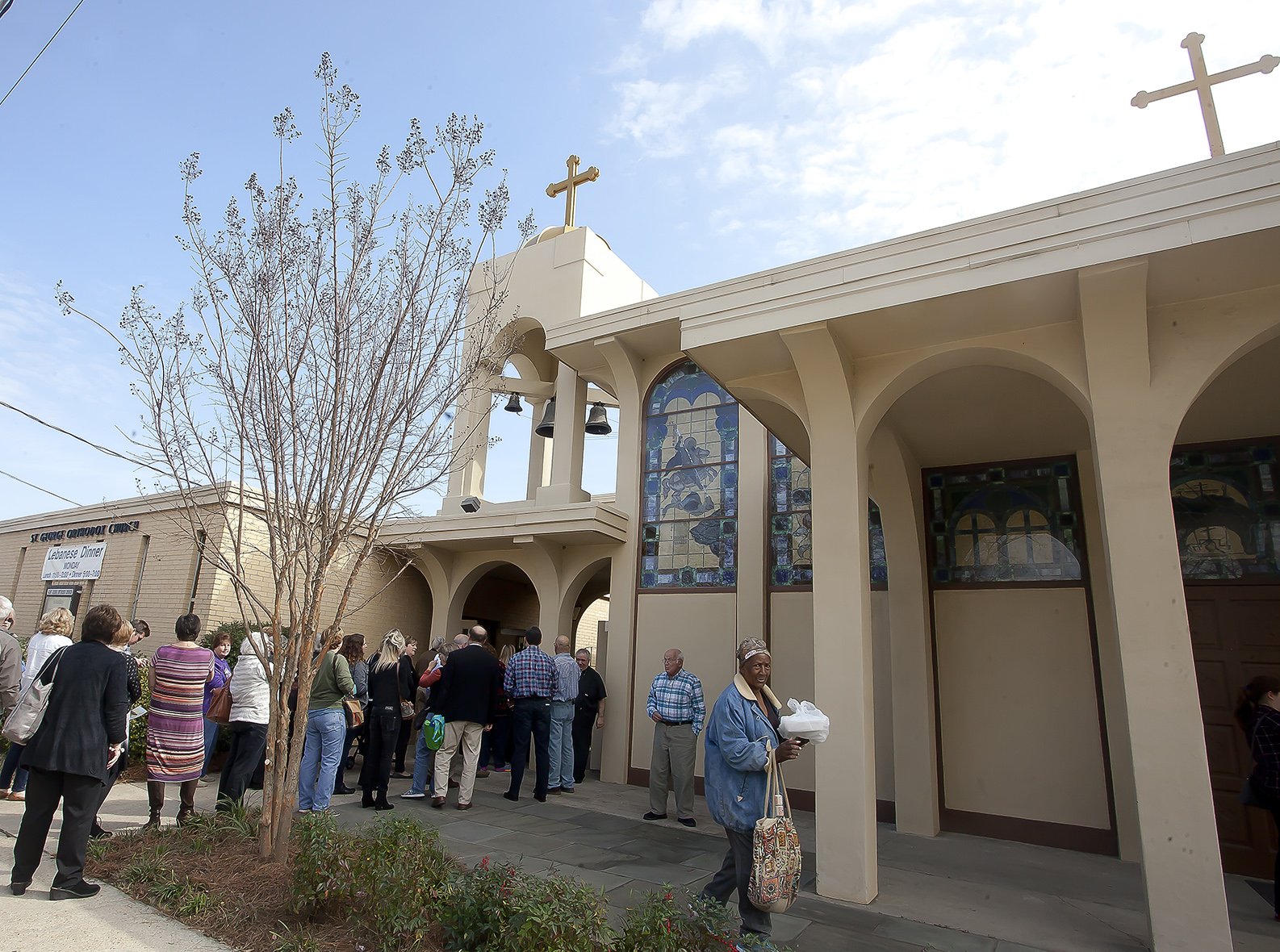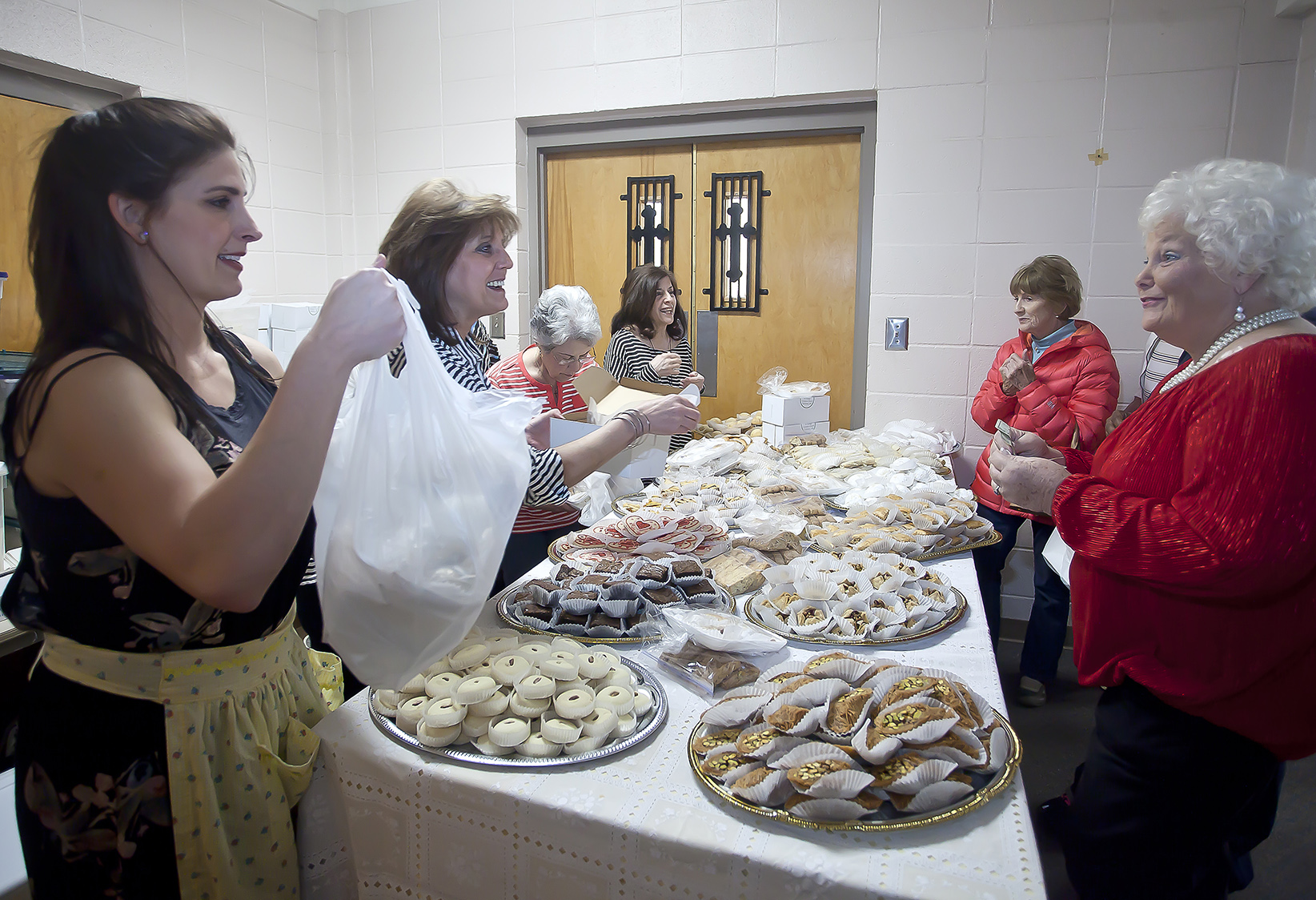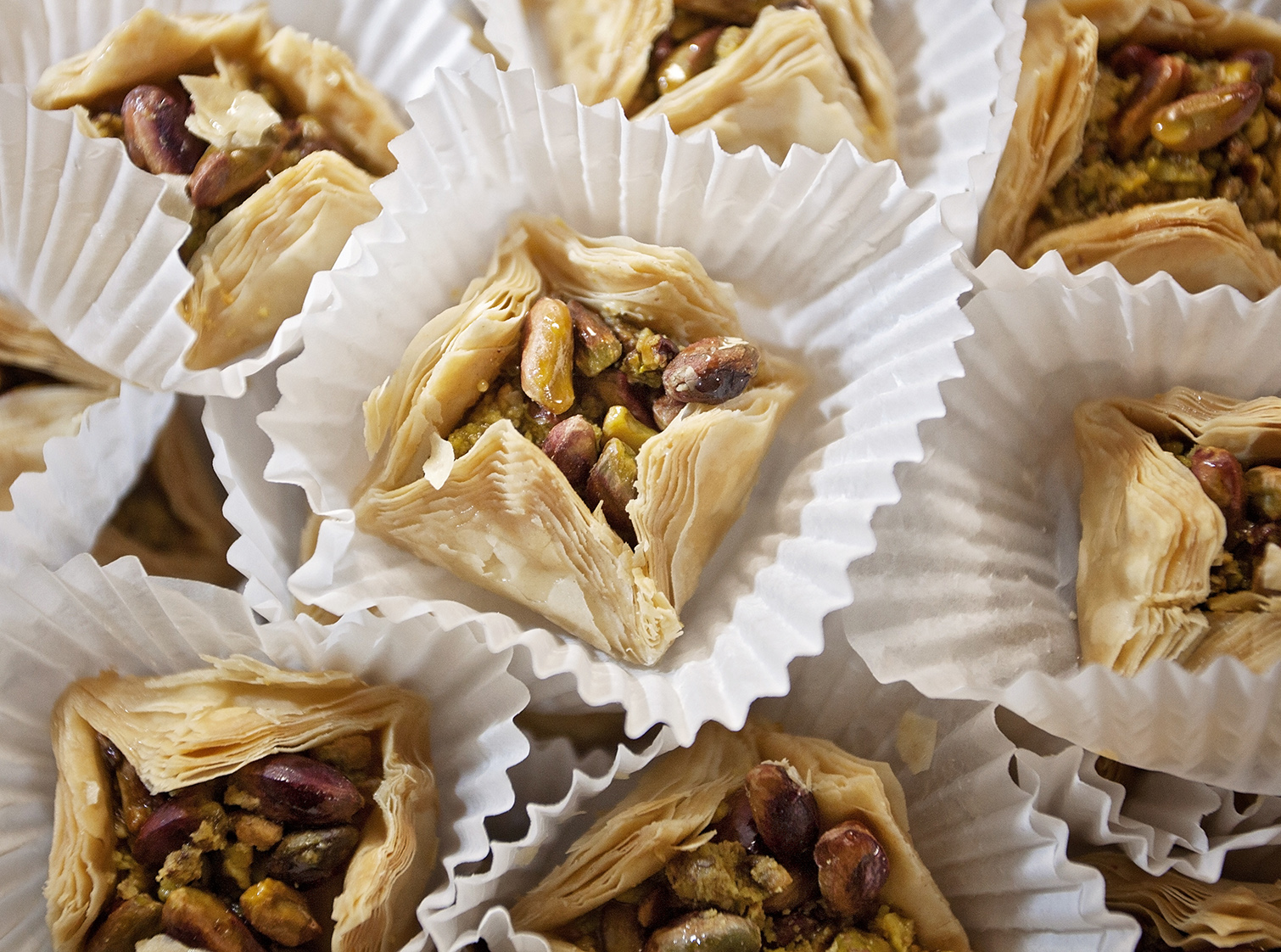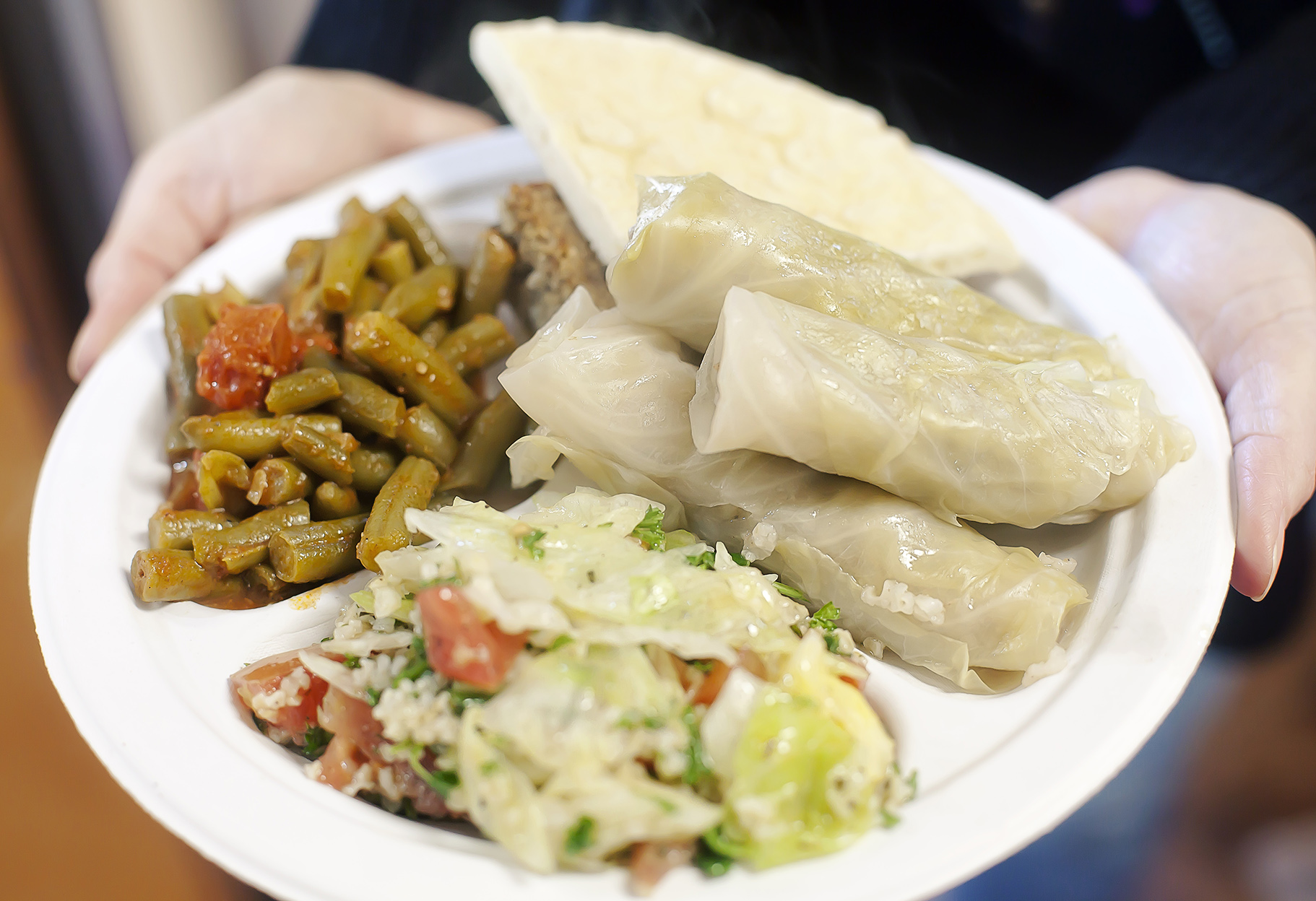Every year in February, the doors of St. George Antiochian Orthodox Church open, and Central Mississippians flock to Vicksburg for a little taste of Lebanon. The annual tradition is the Lebanese dinner, which recently wrapped up its 56th year.
“It’s always on a Monday because we work like dogs on Saturday and Sunday to get ready,” said Mary Louise Nosser, a member of St. George who remembers when the dinner got started and was served at the Jewish B’Nai B’Rith Literary Club in downtown Vicksburg. “We probably don’t even go to bed the night before.”
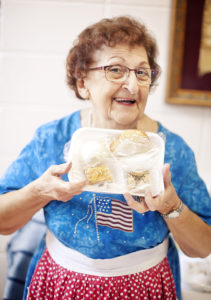
For months leading up to the dinner, church members cook and freeze food, sell tickets and talk up the big event, which has been known to serve a few thousand plates. It’s the church’s biggest fundraiser of the year, but to many of those involved, the meaning is deeper than raising money.
“It’s always been a lot of work, but especially recently, we’ve seen a lot of pride for our people,” Nosser said. “We’re so glad to see our friends come in, and I think there’s a new vigor with our dinner. I think you could call it national pride.”
That sense of Lebanese pride and work ethic is nothing new to Mississippi, according to Dolores Nosser (no relation to Mary Louise), the daughter of two Lebanese immigrants who came to Vicksburg around 1905.
“They (the Lebanese immigrants) always went where they had people they knew could help them — other Lebanese families in the area,” said Dolores Nosser, nicknamed “Do” by family and friends.
Do Nosser’s father was one of the earliest Lebanese immigrants to the city and, though he had only about $18 in his pocket when he came, he knew exactly what their first order of business should be — a church.
“It was the first thing they did,” she said. “They bought a house, and they met for church. There wasn’t but maybe 20 of them, and it’s amazing that our church is over 100 years old now.”
As more and more Lebanese made their way to Vicksburg, the group decided a larger space was needed and bought an old Methodist church. From there, they built the current building south of downtown on the city’s main street, Washington Street, overlooking the Mississippi River.
When they weren’t in church, members of the group were hard at work.
“Just about every one of them was a merchant,” Do Nosser said, adding that her family had a dry goods store on Washington Street to sell to travelers who came on boats along the river. “It seemed like just about all the stores in town were Lebanese; I don’t know how they did it. They got nothing from nobody, and they worked their hearts out to get where they were. That church held them together.”
The story was similar throughout the Mississippi Delta, where Lebanese immigrants made a living by peddling dry goods via horse and buggy.
Jimmy Thomas, associate director of the Center for the Study of Southern Culture at Ole Miss, said many Lebanese who immigrated to the South came through the Port of New Orleans and traveled up the Mississippi River.
“They were peddlers who would carry products from town to town,” Thomas said. “There were so many farming communities throughout the Mississippi Delta, a lot of those farmers preferred to buy from peddlers instead of traveling into town since they worked on farms.”
In Clarksdale, which was known to some at one point as “Little Lebanon,” Pat Davis Jr., still runs the business his grandfather opened in 1924.
“My grandfather, Abe Davis, was 14 when he came over to Ellis Island and ended up in Clarksdale,” Davis said, adding that he brought two younger siblings with him to America, but no adults. “He peddled to people for a living and did that until he was about 18 or 20 before he opened a restaurant.”
At first, the restaurant was called the Bungalow Inn, then the Delta Inn. Today, it’s known as Abe’s Barbeque and continues to be operated by the family. And though there are still some Lebanese folks left in Clarksdale, Davis said it’s not what it used to be.
“We probably have a third of what we had growing up in the 1970s,” he said. “A lot of people have passed away or moved away. You have kids that want to venture out, so we’ve dwindled down over time.”
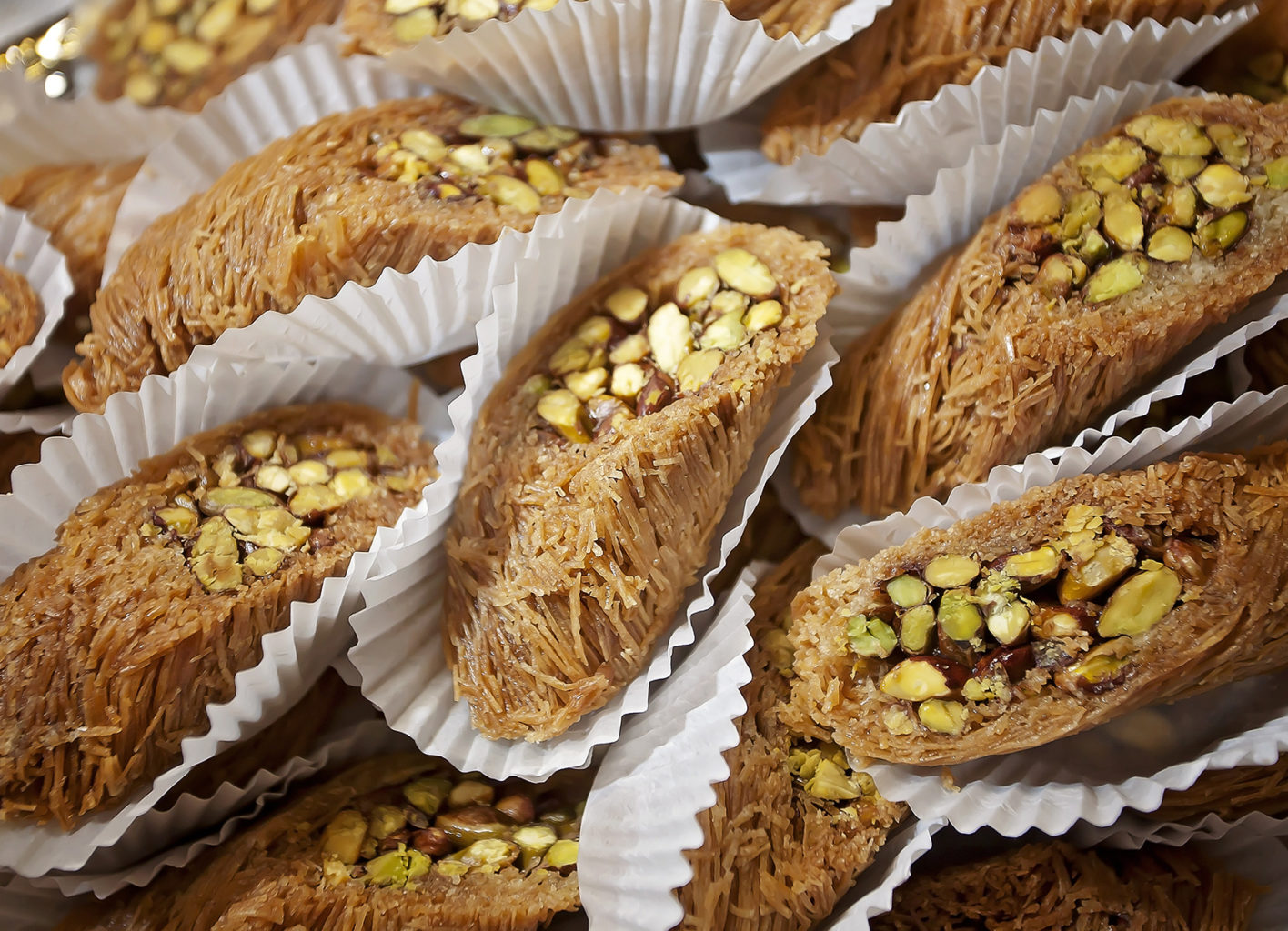
But Davis is confident that his grandfather’s restaurant will stay open and the family tradition will continue.
“We’re going to keep it in the family,” he said. “I’ve got a lot of nieces and nephews.”
And that family tradition of food also continues to go on strong with the Jabours in Vicksburg.
“We taught our kids how to make kibbee and cabbage rolls at a very young age,” said Misty Jabour, whose two children, John Michael, 15, and Marissa, 12, are fourth-generation members of St. George. “We want them to be able to carry on the legacy and heritage of their Lebanese ancestors. We teach them in hopes they’ll carry on that tradition and teach their children.”
Marissa and John Michael Jabour are part of the crew putting in weekend time before the dinner, prepping nearly 200 pans of kibbee, rolling hundreds of cabbage rolls, cutting onions and doing just about anything and everything else alongside their family and other church members.
They aren’t the only young people of St. George working alongside their grandparents. It’s common that the families stick together and help out over the years.
“We’re a close family, and I think that’s true in most Lebanese families,” Do Nosser said. “We always stuck together and honored the older people. It’s just the ethnicity of being Lebanese; it just runs in the family.”
Do Nosser added that while the Lebanese folks stick together, they also work hard to support the community as a whole.
“We go to all the other dinners. We’re connected, and we’re close to this community,” she said. “It’s our town, and we do all we can to support it.”
Whether they come for the tabouli salad or Lebanese green beans, the Lebanese sweets and pastries, or just the fellowship, members of the community support them right back and the dinner continues to be a hit each year.
“We’ve had about 50 years to get it right, but it’s all the work you can handle,” Mary Louise Nosser said. “But we welcome everybody to come and learn. We have never hidden our secrets, we’re too proud not to share with everybody.”
“Just to see the people in there making the kibbee would knock you out,” Do Nosser said. “It’s backbreaking. I can’t walk for three days afterwards, but we love it; everybody loves it.”
“Not everybody is crazy about every bit of it, we’ve all got individual tastes,” Mary Louise Nosser said. “But it makes our work worthwhile to know that so many people look forward to this every year.”
And though Mississippi Lebanese food has infiltrated the culture of the state, the people themselves have made just as big of an impact.
“Lebanese have come to Mississippi and become business owners, community leaders, members of the medical community,” Thomas said. “They have contributed to the history of and culture of Mississippi in countless ways. They’re involved in every walk of life in Mississippi.”
